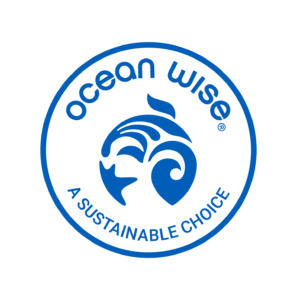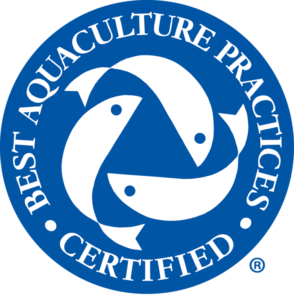We’ve had a lot of questions about farmed fish and seafood. It’s important to think about farming fish the way you would other farming practices: there’s the good, the bad, and the ugly. Here are some of the answers to our most Frequently Asked Questions.
What is farmed fish & seafood?
Fish and seafood that aren’t wild caught, but rather raised in either open net pens in the ocean or in land-based aquaculture systems are considered farmed. Now as with all farming, whether that’s cattle, poultry or salad greens, there’s the gold standard and then there are harmful practices. We research, interview, visit farms, and insist on third-party certification to ensure we’re only ever selling healthy, sustainable fish and seafood.
What is Aquaculture?
Aquaculture, also known as aquafarming, is the farming of fish, crustaceans, molluscs, aquatic plants and other organisms to produce food. It’s also used to restore habitat and replenish wild stocks, and rebuild populations of threatened and endangered species. There are two main types of aquaculture—marine and freshwater, where populations are cultivated under controlled conditions either directly in bodies of water, like the ocean or lakes, or inland.
What are the pros of land-based or inland fish farms?
Some people hear inland fish farming and they look mildly horrified. Consider some of the challenges around farming fish in the ocean:
- Escapes: If you’re farming a non-native species, escaped fish could compete with native species for resources like food, habitat and spawning areas.
- Chemical usage: The open nature of ocean-based open net pens means that if farmed fish need to be treated with antibiotics or other chemicals, these would flow directly into the ocean.
- Parasites: Ocean-based open net pens can also allow for parasites, such as sea lice to infect wild species
Given the potential issues that surround open net pens, land-based aquaculture systems can be a solid alternative. Escapes are unlikely, bio-security and control over water quality allow the farm to avoid disease outbreaks, meaning chemicals such antibiotics are rarely, if ever, used. Waste water is also treated, meaning polluted water won’t reach the ocean. Many inland facilities, and ALL of the land-based fish farms that provide us with fish, meet the HIGHEST STANDARDS for fish and seafood farming and are OceanWise certified.
What is Ocean Wise?
Ocean Wise is a Vancouver Aquarium conservation program, created to help businesses and their customers identify and purchase sustainable seafood. Whether it’s wild or farmed, the Ocean Wise symbol next to a seafood item lets you know that option is the best choice for the health of our oceans.
How does Ocean Wise make recommendations on farmed fish?
The Ocean Wise Seafood program bases recommendations on scientific reports published by the Seafood Watch program out of the Monterey Bay Aquarium. Each fish is scored on ten different criteria that measures the impact of seafood farms on the environment. Fish must score at least 5.5 out of 10 to be recommended by Ocean Wise.
What’s BAP?
Best Aquaculture Practices – BAP– is one of the world’s most trusted, comprehensive and proven third-party aquaculture certification programs. They’re committed to improving and growing the global supply of responsibly farmed seafood. Check their website for a list of certified facilities around the world.
What’s ORganic Fish?
Some folks are surprised to learn that organic fish are farmed! But just as it pertains to organically raising cattle, the designation speaks to the standard not only of their environment, but of what they’re fed. To certify fish as organic, a number of rules with respect to water recycling, disposal of waste and feed need to followed. This means the food the fish are fed must come from certified organic sources.
What do we mean by sustainable?
Limiting our environmental impact is one of the core values of The Sweet Potato. We look closely at how the foods we sell are cultivated. We value humanely raised meat and seafood, and practices that are environmentally sound. This means we focus on locally raised meat, seafood and produce, and will consider new technology like aquaculture and hydroponics when it means we are getting a ‘clean’ product.
What’s wild Atlantic salmon?
This is a trick question, and yet one, we’re asked a lot. There’s currently no wild Atlantic Salmon available in stores because wild Atlantic Salmon is an endangered species. If you’re eating Atlantic Salmon, it’s farmed!
Want to learn more? Our friends at Ocean Wise put together this Wild vs. Farmed Mythbusters video. And if you still want more, consider becoming an Ocean Wise seafood Ambassador.


